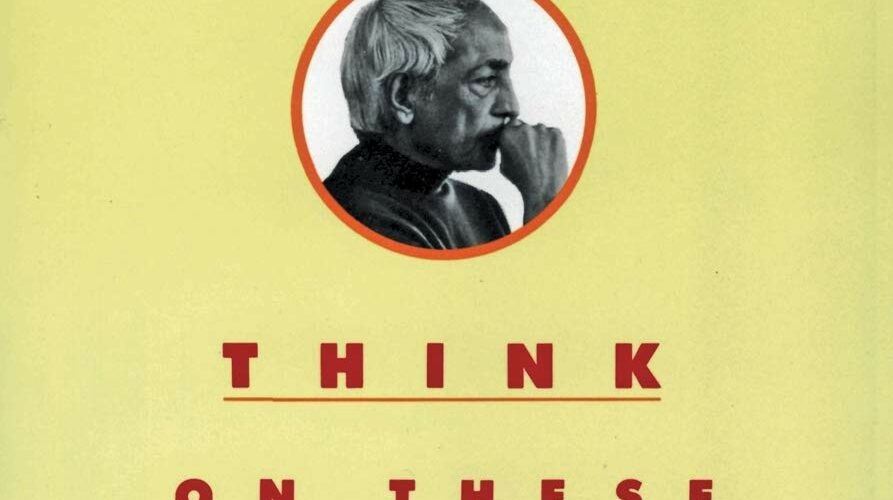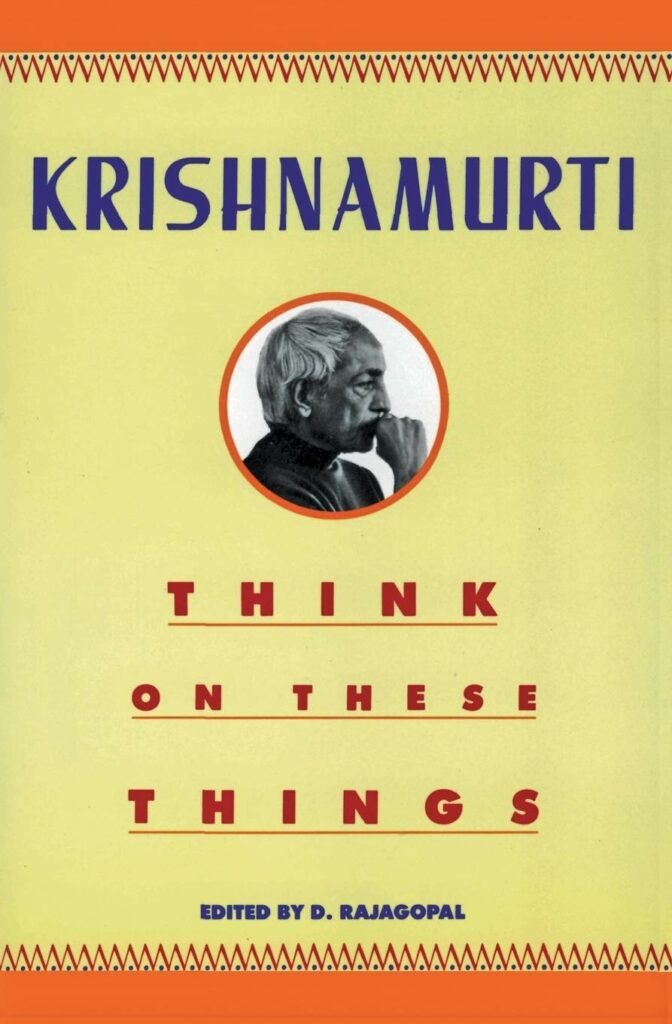From Krishnamurti
Once in a while, I pick a philosophy book to remind myself that I am stupid. This year I picked Think on these things by Krishnamurti and it was quite a different feeling.
Think on these things is a compilation best-of of Krishnamurti courses and discussions with students. Jiddu Krishnamurti (1895–1986) was an Indian philosopher, speaker, and writer known for his teachings on psychological revolution, the nature of the mind, meditation, and human relationships. Although I understood this from the book, I copied this sentence from Wikipedia.
In this book, Krishnamurti discusses various topic, often related to God and/or education, with the following structure: first an introduction to a question or topic followed by students’ questions about the topic. Often the students are drunk because the questions don’t have any relationship with the topic.
Example : theme “Ambition”. Krishnamurti talks about dark side of human nature revolving around being ambitious, the quest for power and the creation of conflict.
Student question: “Why do we feel shy?”. Next: “How can we realize the truth in our daily lives?”. These questions have nothing to do with the topic!
During the 27 chapters we often see the same conclusion: humans should think for themselves to find the truth or God, humans should seek revolution in society and order, not follow spiritual thinkers or leaders and education in general sucks because it doesn’t prepare you for real life. My opinion is that 27 chapters were a tiny bit too much given the repetitiveness in the text reaching always the same conclusions.
Generally, it is not really pleasant to read, badly written and Krishnamurti is often assuming things about the students and being very passive aggressive.
Example: theme “To be religious is to be sensitive to reality”
Student question: “What do you mean by a total change, and how can it be realized in one’s own being?”
Krishnamurti’s answer starts like this: “Do you think there can be a total change if you try to bring about it? Do you know what change is? …”
Given the societal context and the era, some of Krishnamurti’s ideas are interesting to explore, like the invitation to question education, the invitation to know yourself through meditation, the rejection of dogmas and seeking the truth for yourself, against authority and society, but it doesn’t go a step further: what would you do after the revolution, after everybody thinks for themselves, how do you organize society? It is all very superficial. Where is the next level? Be free, be an independent thinker, reject everything… but then, how do you live with 8 billion people like this? How do you reorganize society?
Also, the book is full of contradictions.
Example: chapter 9 “an open mind”. Krishnamurti talks about observing and not judging. One paragraph ends with “If you have no prejudice, no bias, if you are open, then everything around you becomes extraordinarily interesting, tremendously alive. “. Alright, this is a nice idea, I like it.
But the next paragraph shocked me: “[…] observe the insolence of the rich, the pride of the minister, of the big people, of those who think they know a lot […] don’t criticize. “. The insolence of the rich? The pride of some guy? THIS IS COMPLETELY CRITICIZING AND JUDGING, DUDE!
Short version: this book was not necessary, and although it was branded as “philosophy” I didn’t feel less stupid after it, just angrier that people manage to get printed for such banalities.
Just be good humans, enjoy nature, think for yourself, love everybody, don’t follow any dogma, don’t judge, question everything, the truth is out there.
- Frankenstein: review (and the truth) - 15 November 2025
- Voyage au bout de la nuit: review - 15 October 2025
- 2025 New Years Eve Party - 29 September 2025


